The Bible’s seven-day commemoration of Matzot (Unleavened Bread) is tied to both Pesach (Passover; without leaven) and Shavuot (Pentecost; with leaven). Here are readings that focus on Messiah-related themes of the last day of the festival.
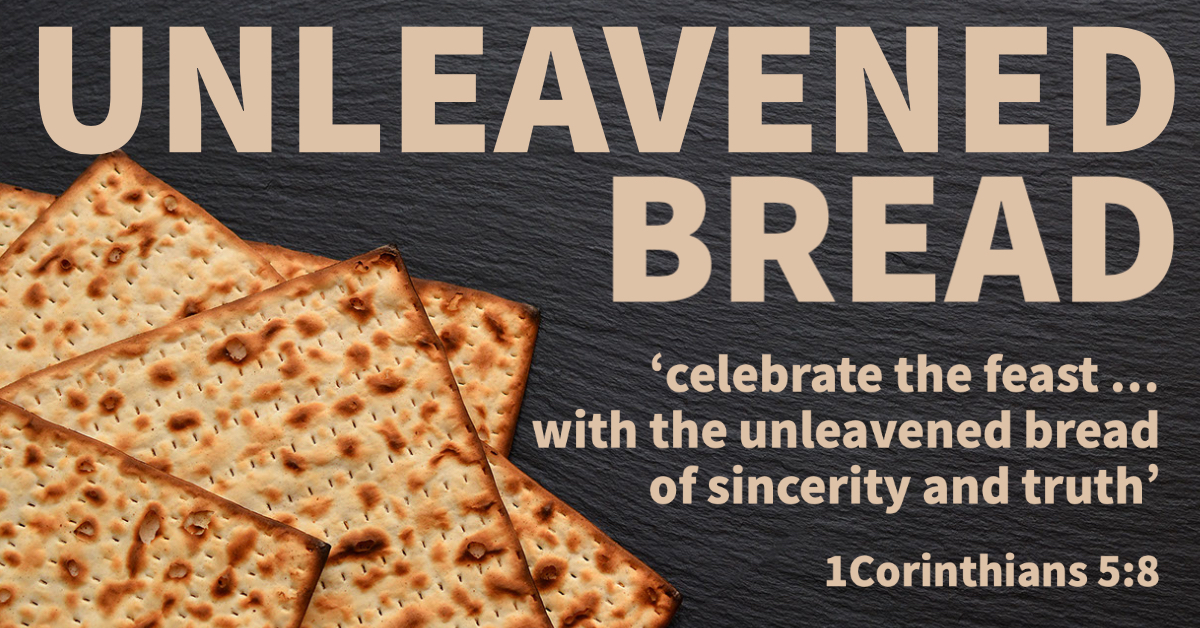

The Bible’s seven-day commemoration of Matzot (Unleavened Bread) is tied to both Pesach (Passover; without leaven) and Shavuot (Pentecost; with leaven). Here are readings that focus on Messiah-related themes of the last day of the festival.
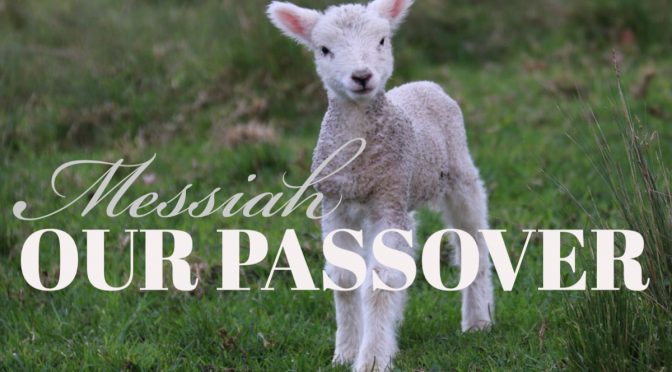
The Shabbat (Sabbath) during the seven days of Chag Matzot (Festival of Unleavened Bread) traditionally has special Bible readings that help us step back and reflect on the overarching messages of Lamb Selection Day, Pesakh (Passover), Matzot and Bikkurim (Firstfruits). These relate directly to the life and mission of Messiah Yeshua (Christ Jesus).
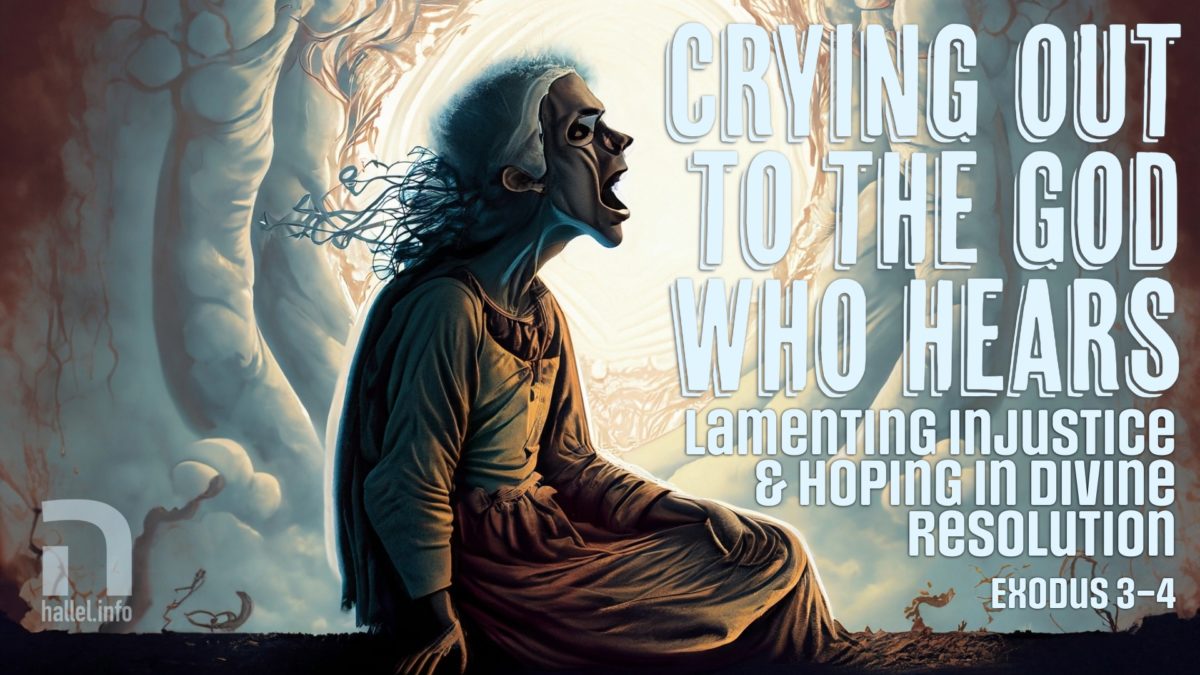
The three signs Elohim gave Moshe (Moses) at the burning bush in Exodus 4 to show the elders of Israel revealed God knew intimately the horrors they endured during centuries of bondage in Mitzraim (Egypt).
First, the staff becoming a snake and back again symbolized how the “tribe” of Israel had been made contemptible in Egypt but was being restored, finally though the Red Sea crossing. Second, the leprous hand showed God saw their affliction as if they were stillborn infants, to which Moshe’s sister, Miriam, was compared. Third, turning a jug of water into blood red revealed that God witnessed their babies’ murders by Egypt into the Nile, which be expanded to grand scale in the first plague.
This study explores that through these signs addressing their specific traumas, God demonstrated to the elders that He heard, remembered, saw and knew His “first-born,” and God would gain justice for their sufferings in Egypt. This is a key lesson of Pesach (Passover) and Matzot (Unleavened Bread).

Because ancient Israel had to flee Egypt quickly during the Exodus and not let the dough to rise. Because Israel was afflicted in bondage in Egypt. These are a couple of the reasons the Torah gives for why these seven days of leaven-lessness following Passover are observed from generation to generation. Yet why does “leaven” get featured mention by Messiah Yeshua (Christ Jesus) in the Gospels and by the Apostle Paul? Check out these Bible readings and related studies about Chag Matzot (Festival of Unleavened Bread) to discover the lessons that help us become alive in the Spirit of God.
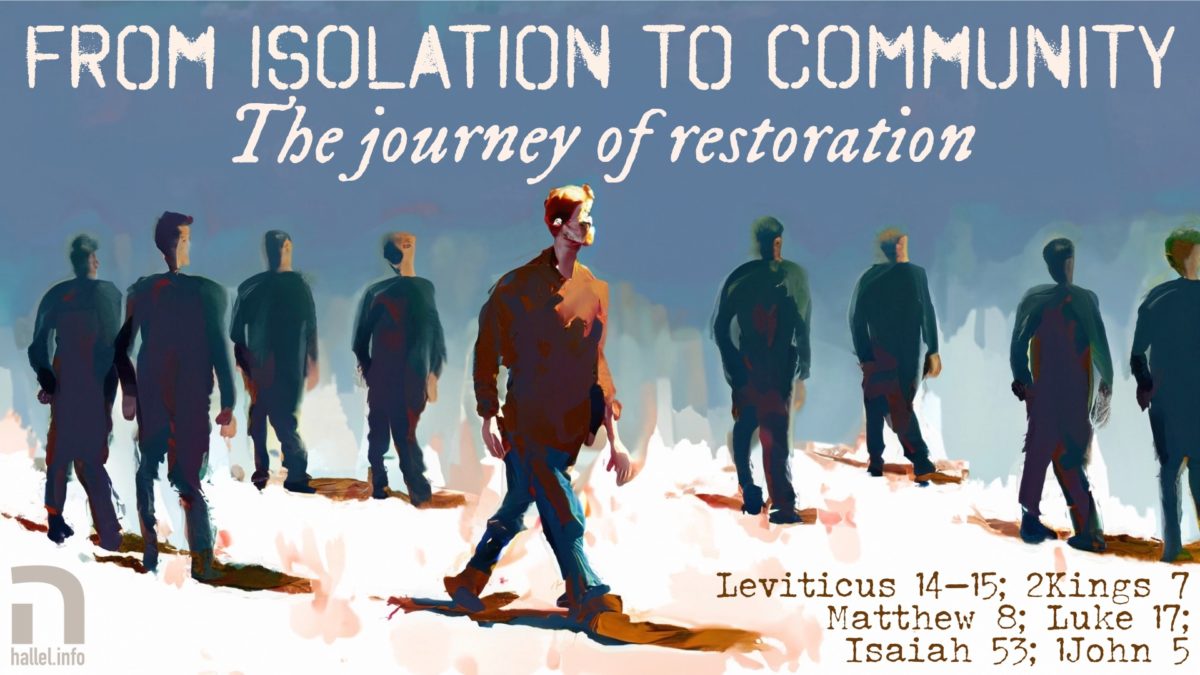
The Torah’s cleansing process for “leprosy” in people and houses recorded in Torah reading מְּצֹרָע Metzora (“leper,” Leviticus 14–15) symbolized restoration, yet isolated the “unclean.” This study explores how Messiah Yeshua (Christ Jesus) in Matthew 8 and Luke 17 inverted this process by providing immediate healing and instructing the restored to offer sacrifices, just as the Torah prescribed, yet welcoming all into God’s presence through faith in His atoning work. A similar lesson comes from an account in 2Kings 7 of four lepers.

A house with toxic mold can be a hidden chronic health hazard. And an unsightly discoloration of the skin could be the harbinger of a creeping killer, if not diagnosed properly and quickly. The physical necessities of dealing with such “leprosy” in body and stuff illustrate well the cancers of character that grow and consume, if left untreated.
The Torah reading, מְּצֹרָע Metzora (“leper,” Leviticus 14–15) reveals how entering the Presence of the Creator of Heaven and Earth requires cleanliness that’s more than skin-deep. That cleanup job is something that’s described in Yom haKippurim (Day of Atonement, Leviticus 16) and reaches its reality in the death and resurrection of Yeshua the Mashiakh (Jesus the Christ).
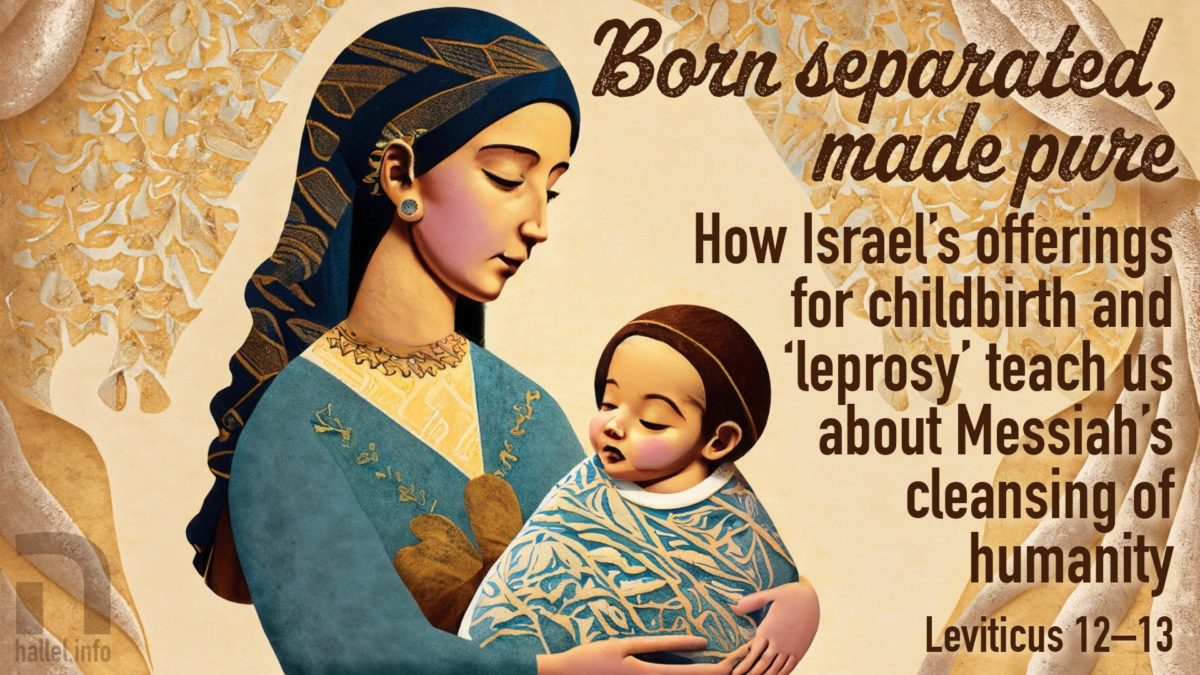
People are often repulsed by the Torah descriptions of “leprosy” and skin diseases in Torah readings Tazria (Leviticus 12–13) and Metzorah (Leviticus 14–15) because they focus only on the physical aspects and miss the weightier spiritual lessons. This study explores how “leprosy” here represented a condition of spiritual rot from separation from God.
While unpleasant to consider physically, examining it spiritually reveals how humanity is born in a state of separation since Eden — also taught via the sin offering for childbirth in Tazria — and God’s gracious provision to redeem and purify people through faith in him. Messiah (Christ) takes this spiritual rot and separation upon Himself to cleanse all who trust in Him as Heaven’s lifeline to the world.